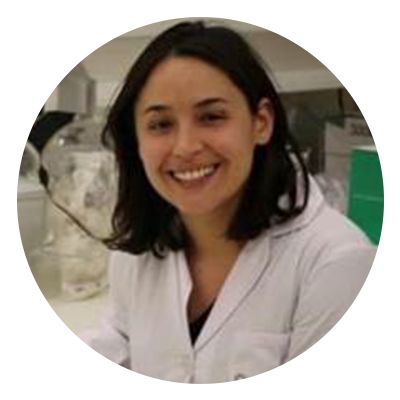How to reduce mercury exposure from fish consumption - Portrait of PhD student Mariana Mendes Ribeiro

Can you tell us about your background?
I’m Portuguese. In 2016, I received a Master’s degree in pharmaceutical science from Lusófona University in Lisbon. Before coming to France in 2019, I worked as a design engineer in the Food and Nutrition Department of the National Health Institute Dr Ricardo Jorge in Lisbon. At ANSES, I joined the Metal and Mineral Trace Elements (ET2M) unit of the Laboratory for Food Safety as part of my thesis project on “Assessment of mercury-selenium interaction in fish and associated human dietary exposure” (MERSEL FISH), which was supervised jointly with the National Institute of Applied Sciences (INSA). I plan to defend my thesis by the end of 2022.
What is your thesis about?
My thesis project deals with a topic of public health interest: how to reduce mercury exposure from fish consumption. Fish can accumulate high levels of toxic metals such as mercury. In fact fish constitute the main route of human exposure to methylmercury, which is the most toxic form of this element. Several studies have shown that selenium may reduce the bioaccumulation of methylmercury by fish and/or promote its elimination. However, there aren’t enough relevant scientific data on this topic to fully confirm this assumption. My thesis therefore aims to acquire knowledge on mercury-selenium interactions in fish and assess trends in human exposure to mercury through food, with a focus on three main objectives:
- development and validation of a new approach for the simultaneous analysis of mercury and selenium species in fish using chromatography and tandem spectrometry techniques (HPLC-ICP-MS);
- assessment of the mechanisms and routes of fish contamination and mercury-selenium antagonism;
- assessment of the fate of mercury and selenium species in fish during cooking, by studying various cooking methods.
What was the most difficult aspect of presenting your thesis in 180 seconds?
The most difficult aspect of presenting my thesis in 180 seconds was precisely the very short time that was allocated, given the complexity and beauty of my thesis project. This exercise required excellent summarising skills, in order to present the main findings of the almost three years of work I carried out, while at the same time following a common thread without omitting key details or compromising the scientific background.
Do you have any advice for future PhD students taking part in this exercise?
Yes. Think of your thesis project as your own personal success story that you want to share with others. You should speak from the heart as you tell your story, but keep in mind that this presentation only lasts three minutes. So identify the key points of your project and explain them in a way that’s simple and captivating, just as you’d do for your family over dinner!


